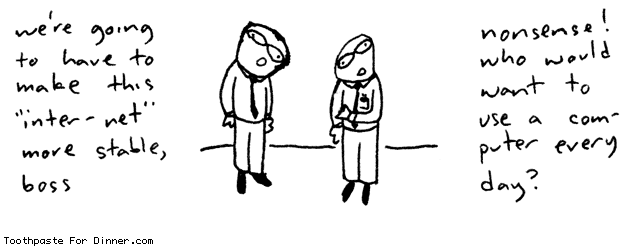
The words “publishing” and “technology” are hot topics these days. The Google news search results wouldn’t surprise you: an obvious spike of news and blog articles popped up in August, almost doubling July’s figures. But while everyone’s debating which new e-book reader will become the market favorite and how publishers will survive the transition to the electronic book, I’m sitting back to consider the smaller, quieter effects of technology in the publishing world. Let the pundits and big voices handle the politics of the industry for a while: I want to get down to the basics, the parts of publishing technology you and I know best.
When I sit down to write, I turn on my computer. It’s natural for me, and to a degree, always has been natural. But most grade school pedagogy hadn’t (and maybe still hasn’t) acknowledged the importance of the computer in many students’ writing processes. I resisted traditional prewriting methods because I wanted to use the computer. So I outlined in my word processor; I used painting programs to (poorly) sketch out important scenes. I even put a slideshow together as a storyboard. Contrary to my middle school teachers’ beliefs, there are ways of making the computer and internet work for you in your prewriting. But old habits die hard, and even I admit that sometimes I just need to scribble something on a piece of paper.
So here’s the question: do we need to be able to change our craft to fit our resources? Is there a way to make everything we do to start writing electronic? Is our use of paper nostalgia? Or is there really something important about paper?
(image courtesy of ToothpasteForDinner.com)
Update! (10/09/08 @ 2:40pm) I was reading a post on The Book Bench, and found the following quote about writing by Don DeLillio:
The reason I use a manual typewriter concerns the sculptural quality I find in words on paper, the architecture of the letters individually and in combination, a sensation advanced (for me) by the mechanical nature of the process—finger striking key, hammer striking page. Electronic intervention would dull the sensuous gratification I get from this process—a gratification I try to soak my prose in.Just more food for thought!


2 comments:
I definitely think that writing feels different depending on the medium, be it on paper & pen, typewriter, or computer. I always have to brainstorm and draft on paper, and transfer only to computer when the product feels closer to final. I've long craved a typewriter for exactly the reason quoted in your post.
Thanks for the comment Kyley! Are you ever in situations where you don't have access to paper for your drafting? Would drafting on a typewriter be a happy medium, or would you prefer using a typewriter for more final versions (like your computer)?
Post a Comment